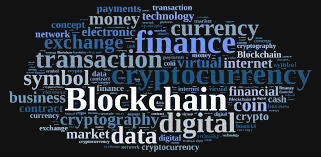





Published on Feb 21, 2020
ChainLink is secure blockchain middleware that allows smart contracts on various networks to connect with the critical resources they need to become useful for 90% of use cases. We've been creating secure oracles for Bitcoin and Ethereum for over 3 years, connecting smart contracts on various networks to critical external data feeds as triggers, and the many off-chain systems needed to become operational.
Our team is excited about making a world where smart contracts are securely connected to the off-chain data, APIs and widely accepted payments they need to work for 90% of real use cases.
The LINK Network is the first decentralized oracle network; allowing anyone to securely provide smart contracts with access to key external data, off-chain payments and any other API capabilities. Anyone who has a data feed, useful off-chain service such as local payments, or any other API, can now provide them directly to smart contracts in exchange for LINK tokens.
Becoming a ChainLink Node Operator is an easy way to monetize your experience with a specific API as a developer. It's also a great way for data providers, payments providers and various online service providers e.g. e-signature to sell their API based services directly to a smart contract.
If you'd like to operate a ChainLink Node to offer your services for direct purchase by a smart contract, we're excited to help get you setup. By creating a decentralized infrastructure for smart contracts to access critical off-chain resources, there is now a scaleable, secure and auditable way to add data, off-chain payments and APIs into a smart contract.
Smart Contracts are unable to communicate with external resources on their own. Data feeds, any/all APIs and traditional bank payment systems are all inaccessible to smart contracts without blockchain middleware like ChainLink.
This limitation is inherent in how smart contract data is secured on a blockchain, and is due to the way that consensus is reached by miners around blockchain-based transaction data; this limitation will remain for all smart contracts for the foreseeable future.
The way this problem is traditionally solved is through the use of a blockchain middleware called an "oracle", which is the role ChainLink plays in the smart contract ecosystem.
ChainLink bridges smart contracts to key off-chain resources like data feeds, legally binding e-signature and bank payments; allowing them to mimic real world financial agreements, for example:
Smart Contract Securities need data feeds about market prices and market reference data e.g. Interest rates. They commonly also need to pay into existing bank accounts for many of their users, which can only be done through a ChainLink that connects to the existing banking system.
Smart Contract Insurance needs data feeds about IoT data related to the insurable event in question e.g. was the warehouses magnetic door locked at the time of a breach, was the companies firewall online, did the flight you had insurance on arrive on time, etc... Insurance products also commonly want to pay out in formats that users already want to receive e.g. USD to the end-users bank account.
Trade Finance Smart Contracts commonly need GPS data about shipments, data from supply chain ERP systems, and customs data about the goods being shipped; all of this data needs to be added to the smart contract by a ChainLink. Many trade finance transactions are still currently settled in fiat currency, which they can pay in using a ChainLink.
The ChainLink Network is a decentralized network of ChainLink Nodes, which are all selling usage of specific data feeds, APIs and various off-chain payment capabilities directly to a smart contract.
Any data, payments, e-signature, or other API provider, as well as individual developers, can easily join the network by connecting an API they're familiar with. Once the API they'd like to offer to smart contracts is connected to a ChainLink, they become a ChainLink Node Operator, responsible for keeping that API connected to the ChainLink Network and being compensated in LINK for their successful fulfillment of on-chain requests.